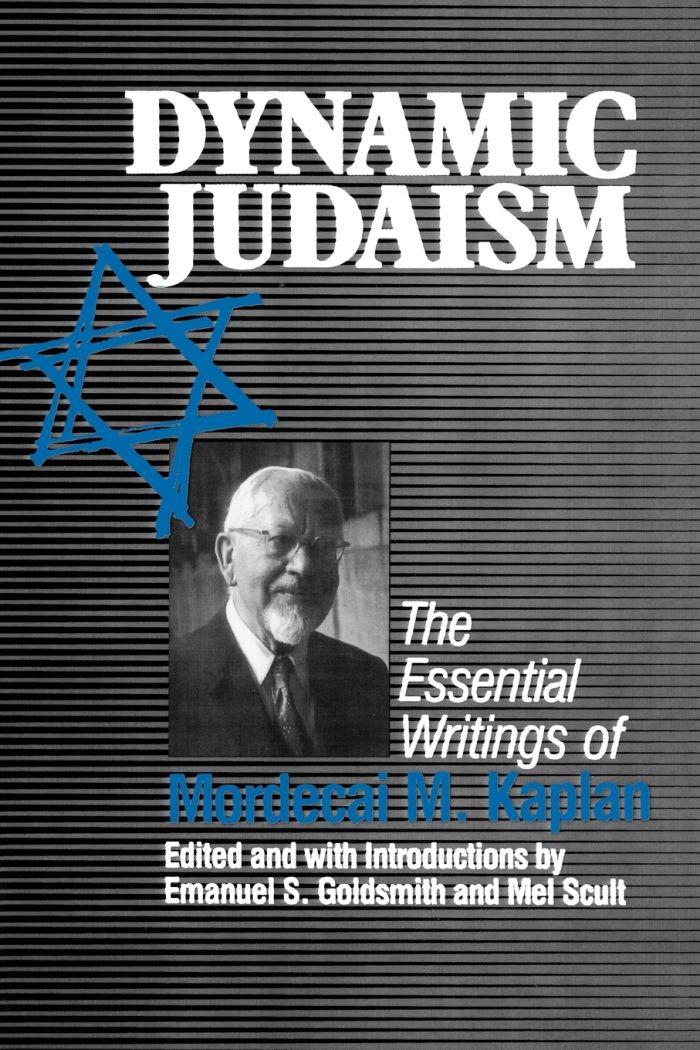Dynamic Judaism
The Essential Writings of Mordecai M. Kaplan

This book can be opened with

Available in a new digital edition with reflowable text suitable for e-readers
Mordecai M. Kaplan was born in a small Lithuanian town on the outskirts of Vilna on a Friday evening in June of 1881. Kaplan was raised in a predominately Jewish atmosphere, which is shown by the fact that he knew his day of birth only by the Jewish calendar until he went to the New York Public Library as a young man to look up the corresponding date. His family was extremely traditional, and his father, Israel Kaplan, was a learned man.Kaplan's concept of Judaism as an evolving religious civilization was widely influential in 20th-century American Jewish life, and his founding of the Reconstructionist Rabbinical College created a new denomination. This book contains a biographical essay and excerpts from all of his major works.
“Intelligently organized . . . An excellent introduction to Reconstructionism.”—Library Journal
Mordecai Kaplan – who died in 1983 at the age of 102 – was a towering figure and influence in American Jewry. His unusual combination of theology and common sense led him not only to construct new approaches to Judaism geared to our time but to devise practical expressions – ranging from the synagogue center to the ceremony of bat mitzva – which proved to be major and far-reaching contributions to the revitalization of Jewish life in America…This volume makes an admirable selection of his ‘essential writings,’ classified under appropriate heads. They are compelling reading…[Kaplan] made his impact not only through his Reconstructionist movement (which he did not wish to develop as a separate denomination or. A ‘fourth philosophy’) but even more through his pervasive influence on the Conservative and Reform movements and on the American Jewish community as a whole. Like a modern Socrates, he prodded his hearers and readers to think for themselves and to reach conclusions that were original and relevant in the pursuit of Jewish continuity in the modern world.—The Jerusalem Post Magazine
Emanuel S. Goldsmith is a professor of Yiddish and Jewish Studies at Queens College, City University of New York, and Rabbi of Congregation M’vakshe Derekh in Scarsdale, New York. He has lectured widely on the topic of modern Jewish literature and thought. He is the editor of the two-volume anthology Yiddish Literature in America, 1870-2000. With Mel Scult, he edited Dynamic Judaism: The Essential Writings of Mordecai M. Kaplan, available from Fordham University Press. His other publications include Thinkers and Teachers of Modern Judaism and Events and Movements in Modern Judaism.
Mel Scult (Author)
Mel Scult is a professor of Judaic Studies at Brooklyn College of the City University of New York. He is the author of Millennial Expectations and Jewish Liberties.

